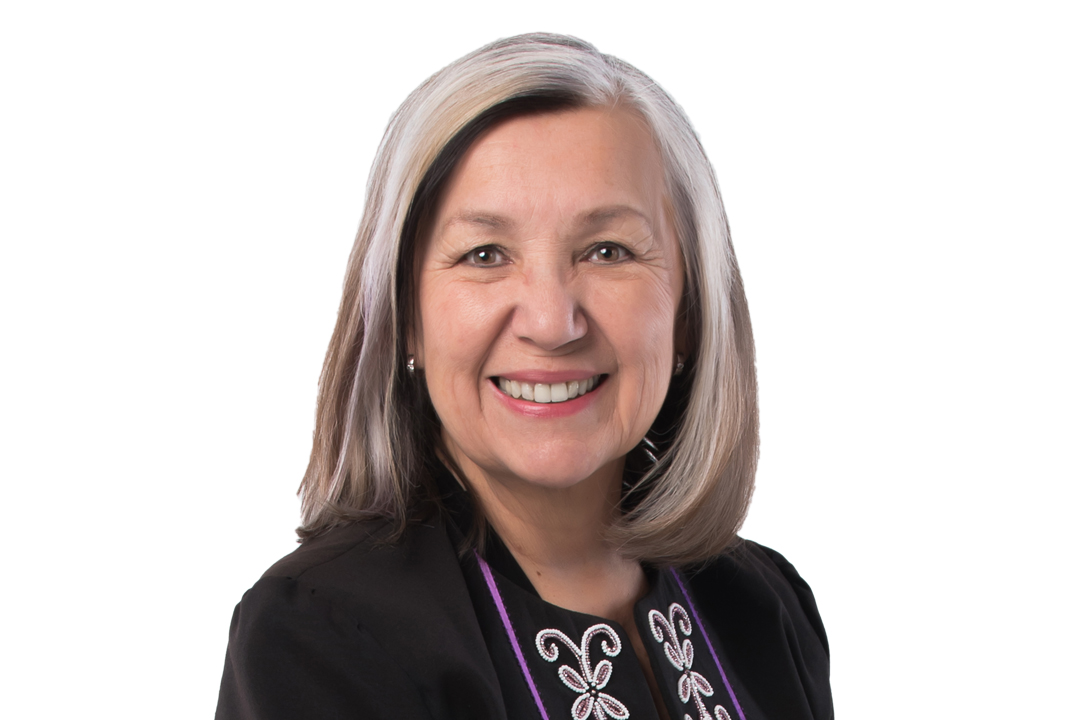
Dr. Marie Battiste: Excellence in education
In May 2019, Dr. Marie Battiste (EdD) was attending a conference when she received a phone call from the Governor General’s office. She was both surprised and pleased to learn that she had been selected to be an Officer of the Order of Canada.
By Shannon CossetteOn June 27, 2019 a public announcement was posted on the Governor General’s website of the awardees, and Battiste received her official pin by mail. A more lavish affair, originally scheduled for February 2020, has been postponed to a later date due to the COVID-19 pandemic. With or without a ceremony, Battiste is proud to have been selected, as she concludes a distinguished 27-year career as a professor in the College of Education at the University of Saskatchewan (USask).
“Being among the very few Indigenous men and women in Canada to have received this honour, I feel deeply honoured to be among these greats,” she said. “Only one other Mi’kmaq has received this, Rita Joe of Eskasoni, the late great poet whose life is lived still in her writings and poetry about her years in residential school. My life has been enriched by hers and others as notable as Leroy Littlebear, Blackfoot scholar, Elder and statesman, and Cindy Blackstock, leader and activist. So to reach this level, I am humbled by the recognition of my writing, my talks, and activism to change systems and structures to honour, respect and include Indigenous knowledge, languages and peoples in their systems.”
After earning her bachelor’s at the University of Maine, her master’s at Harvard and doctorate at Stanford, Battiste returned with her family to Nova Scotia and worked from 1983-93 with Mi’kmaw schools in Potlotek First Nation and then Eskasoni First Nation.
“I am a federally recognized citizen of Mi’kmaq First Nations in Canada and a federally recognized citizen of the Aroostook Band of Micmacs in Maine,” she said. “My status as to whether I was a Canadian citizen defined which of the statuses I received, honorary or regular. I am a First Nations member of Potlotek First Nation and a treaty signatory of the Queen, though technically, I am a USA-born citizen.”
Battiste began her journey at USask in the early 1990s, in what was then known as the Indian and Northern Education Program in the College of Education.
Battiste’s scholarship began taking root in decolonization and language education, working to advance education of social and cognitive justice. Her extensive work teaching, supervising graduate students, committee work on and off campus, grants, research, publications, and international speaking led to multiple awards and four honorary degrees. Among major honours, Battiste was named a fellow of the Royal Society of Canada in 2013, received a National Aboriginal Achievement Award in 2008 and earned USask’s Distinguished Researcher Award in 2005.
After 27 years, Battiste retired from the university this year and is reflecting on her time spent at USask, and some of the changes that she has seen.
“Indeed, there have been several significant changes in the university and I feel proud to have been part of many of them,” she said.
Battiste points to the 1996 Social Sciences and Humanities Research Council (SSHRC) Summer Institutes—Cultural Restoration of Oppressed Indigenous Peoples—which led the start of reclamation of Indigenous knowledges that has inspired change not just in Canada, but internationally, as well as the development of an Indigenous student space on campus that eventually led to building the Gordon Oakes Red Bear Student Centre.
Battiste said the wahkohtowin conference in 2014 was significant to celebrate the changes at USask, from including Indigenization in all areas of the university, and later establishing the position of Vice-Provost Indigenous Engagement held by Dr. Jacqueline Ottmann (PhD), to the development of new standards for promotion and tenure for Indigenous faculty working in and with Indigenous knowledges.
“The development of a research centre, the Aboriginal Education Research Centre (AERC) for which I was the first research director, has had a significant impact in education through the development of the Aboriginal Learning Knowledge Centre,” Battiste said. “That was a multimillion-dollar national project and the beginning of an international land-based education project under Dr. Alex Wilson (PhD), the next research director of AERC, completed with a master’s and a PhD in land-based education.”
While she has retired, rest and relaxation do not seem to be in Battiste’s immediate plans.
“My projects seem to keep on growing, though relaxing would be nice,” she said. “At the moment, I am in the first year of a seven-year SSHRC partnership project on Thinking Historically, which is to assess history education across Canada and in particular for my purposes, to assess how and what Indigenous knowledges and histories are being taught in K-12 schools across Canada …
“As a Pierre Elliott Trudeau Foundation Fellow, I am involved in mentoring new scholars in the foundation through shared mentorship, guidance and knowledge mobilization. My committee work continues with the Royal Society of Canada to decolonize its knowledges, diversify its membership, and address its systemic discrimination. Finally, my partner Sakej and I are also working on the next edition of our book, Protecting Indigenous Knowledge and Heritage, in the coming year.”

